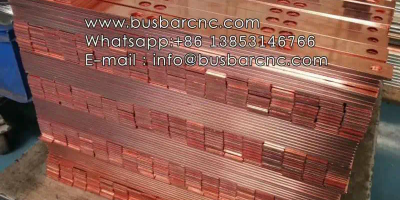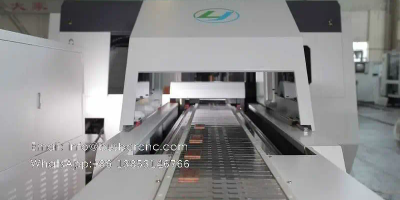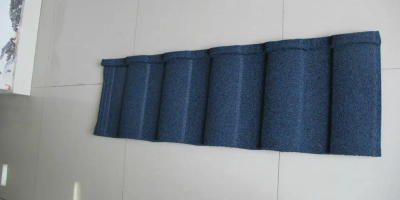Soil stabilization is a crucial aspect of construction and infrastructure development, especially when it comes to preserving the integrity of foundations. The use of soil stabilizers, particularly those utilizing liquid technology, has become increasingly popular due to their effectiveness in enhancing the mechanical properties of soil and ensuring the long-term stability of structures. In this article, we will delve into the significance of soil stabilizers in maintaining foundation integrity and explore the innovative liquid technologies that are revolutionizing the field of soil stabilization.
Understanding Soil Stabilization
Before delving into the role of liquid technology in soil stabilization, it is important to grasp the fundamentals of this process. Soil stabilization refers to the various techniques and materials used to improve the engineering properties of soil, making it suitable for construction purposes. The primary goal of soil stabilization is to enhance the load-bearing capacity, durability, and overall performance of the soil, thereby ensuring the stability and longevity of constructed structures.
Historically, soil stabilization has been achieved through the use of traditional materials such as cement, lime, and fly ash. While these materials have proven effective, they often present logistical challenges and environmental concerns. This has led to the development and adoption of innovative soil stabilizers that harness the power of liquid technology to offer a more efficient and sustainable approach to soil stabilization.
The Role of Liquid Technology in Soil Stabilization
Liquid soil stabilizers, also known as soil binders or soil modifiers, have gained traction for their ability to effectively transform the mechanical properties of soil. These advanced formulations are typically composed of water-based solutions containing polymers, resins, and other additives that interact with the soil particles, resulting in improved strength, cohesion, and compaction characteristics. By utilizing liquid technology, soil stabilizers can be easily applied and distributed, penetrating the soil matrix to deliver enhanced stability and load-bearing capacity.
One of the key advantages of liquid soil stabilizers is their versatility in addressing a wide range of soil types and conditions. Whether dealing with cohesive soils, granular soils, or expansive clays, liquid stabilizers can be tailored to meet specific engineering requirements, making them a valuable solution for diverse construction and infrastructure projects. Furthermore, the environmentally friendly nature of many liquid stabilizers aligns with the growing emphasis on sustainable construction practices, offering a greener alternative to traditional stabilization methods.
Enhancing Foundation Integrity
The integrity of a structure’s foundation is paramount to its long-term performance and safety. Poor soil conditions, such as low bearing capacity, high susceptibility to settlement, or inadequate compaction, can jeopardize the stability and structural integrity of foundations, leading to costly repairs and potential safety hazards. This is where the role of soil stabilizers, particularly those leveraging liquid technology, becomes instrumental in preserving foundation integrity.
Liquid soil stabilizers work to reinforce the soil beneath foundations, effectively mitigating the risks associated with subsidence, differential settlement, and soil erosion. By improving the soil’s strength and load-bearing capacity, these stabilizers provide a solid and consistent foundation support, reducing the likelihood of settlement-induced damages and structural failures. Additionally, the enhanced compaction and stability achieved through liquid soil stabilization contribute to improved drainage and resistance to external factors such as water infiltration and frost heave, further safeguarding the foundation against deterioration.
Innovative Applications in Infrastructure Projects
The application of liquid soil stabilizers extends beyond foundational support, encompassing a myriad of infrastructure projects where soil enhancement is pivotal. Road construction and maintenance, in particular, stand to benefit significantly from the utilization of liquid soil stabilizers. By treating subgrade soils with specialized formulations, road foundations can be fortified, resulting in better pavement performance, reduced rutting, and increased resilience to heavy traffic loads. This not only prolongs the service life of roadways but also reduces the need for frequent repairs and maintenance, ultimately leading to cost savings and improved transportation efficiency.
Furthermore, liquid soil stabilizers have found application in the development of sustainable building foundations in regions prone to soil-related challenges such as expansive clay soils, liquefaction-prone areas, and environmentally sensitive landscapes. By employing customized stabilizing agents, engineers can mitigate the adverse effects of problematic soils, allowing for safe and durable construction while minimizing the environmental footprint of the project.
Advancements in Liquid Stabilization Technologies
The ongoing advancements in liquid stabilization technologies continue to drive innovation in soil engineering and construction practices. New formulations are being developed to address specific challenges in soil stabilization, such as achieving rapid strength development, enhancing resilience to environmental factors, and imparting flexibility to accommodate dynamic soil conditions. Furthermore, research efforts are focused on integrating sustainable and eco-friendly materials into liquid stabilizers, aligning with the industry’s commitment to sustainable development and environmental stewardship.
In addition, the incorporation of nanotechnology in liquid soil stabilization represents a promising frontier in the field. Nanomaterials, with their exceptional reactivity and surface-modifying capabilities, offer the potential to further enhance the performance of soil stabilizers by optimizing particle interactions and strengthening soil aggregates at the microscale. This opens up new possibilities for tailoring soil stabilization solutions to meet the evolving demands of modern construction and infrastructure projects.
Soil stabilization, particularly through the application of advanced liquid technologies, plays a pivotal role in preserving the integrity of foundations and ensuring the long-term stability of constructed infrastructure. By harnessing the power of liquid soil stabilizers, engineers and construction professionals can address various soil challenges, enhance foundation integrity, and contribute to the sustainability of infrastructure projects. As technology continues to evolve and new innovations emerge, the future of soil stabilization holds promising prospects for creating resilient, long-lasting foundations that form the backbone of safe and sustainable built environments.
In conclusion, the adoption of liquid soil stabilizers represents a transformative shift in soil engineering and construction practices, offering an effective, sustainable, and versatile solution for preserving foundation integrity. With ongoing advancements and innovative applications, liquid technology is poised to redefine the way we approach soil stabilization, paving the way for stronger, more resilient foundations that form the bedrock of our built environment.
What is Wurtzite boron nitride?
.webp)




